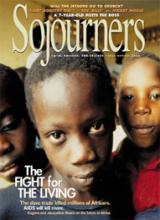The great irony about today's "simple living" trend is that it really isn't simple, or about simple things, at all. Two recent volumes - Simpler Living, Compassionate Life: A Christian Perspective, edited and compiled by Michael Schut, and Graceful Simplicity: Toward a Philosophy and Politics of Simple Living by Jerome M. Segal - nicely illustrate this observation.
In Schut's collection of 29 articles and two brief stories, "simple living" serves as the umbrella under which are grouped themes ranging from the value of contemplative prayer, leisure time, and daily attentiveness to the need for profound economic and ecological change. From a somewhat different perspective, Segal defines "simple living" as graceful living, a way of life in which the aesthetic dimension and the role of service are central. "Simple living" thus begins to emerge as a catch phrase for a number of personal, social, environmental, economic, and political initiatives that have both micro and macro implications.
Focusing on the latter, Harvard University's Timothy C. Weiskel offers in the Schut volume one of the most powerful and provocative presentations, where he describes the increasingly catastrophic impact of growth and consumerism on the global ecology. Referencing scientific indicators that suggest we have entered a global "extinction event" affecting numerous species, Weiskel calls for a theological revolution to unseat our dual Western commitments to human dominion over nature and to unlimited growth and consumption. He calls upon theologians - and readers - to take on the very un-simple task of articulating and acting upon a theology that locates the human species within, not above, a larger whole and that stands as a challenge to contemporary conditions of global human and ecological suffering.
Read the Full Article
